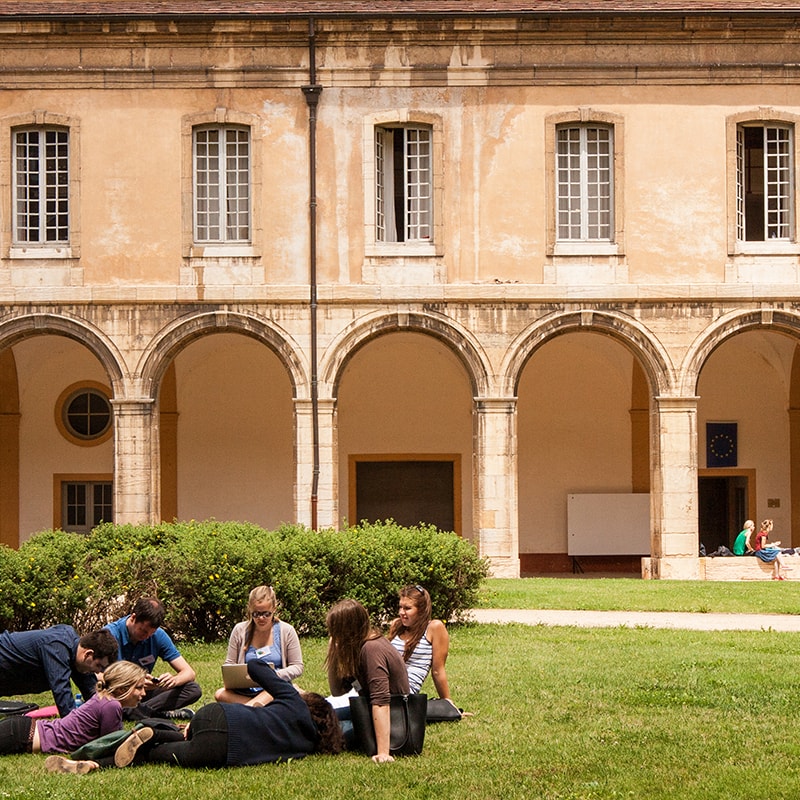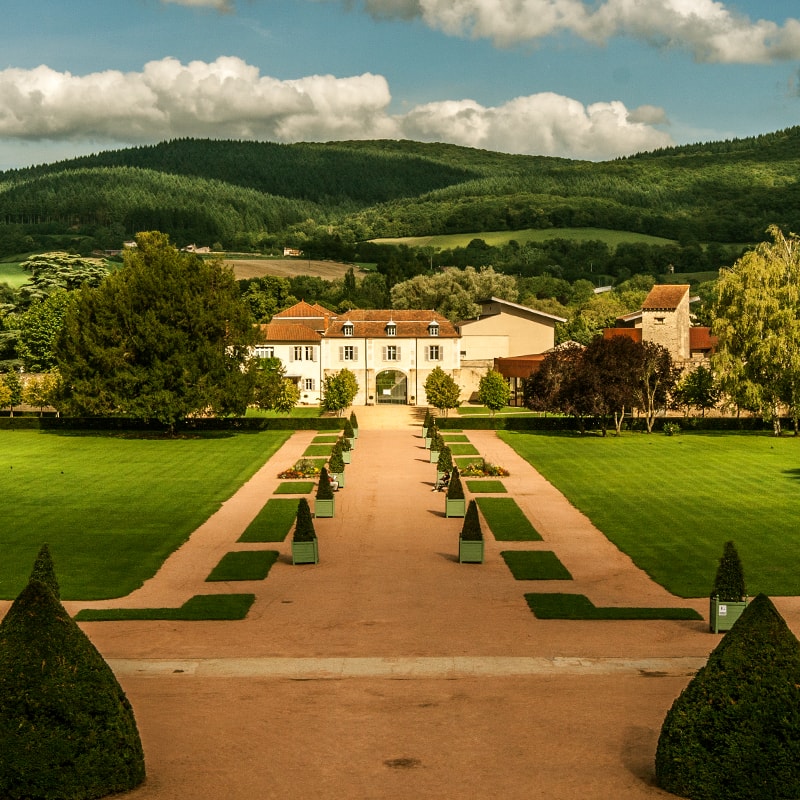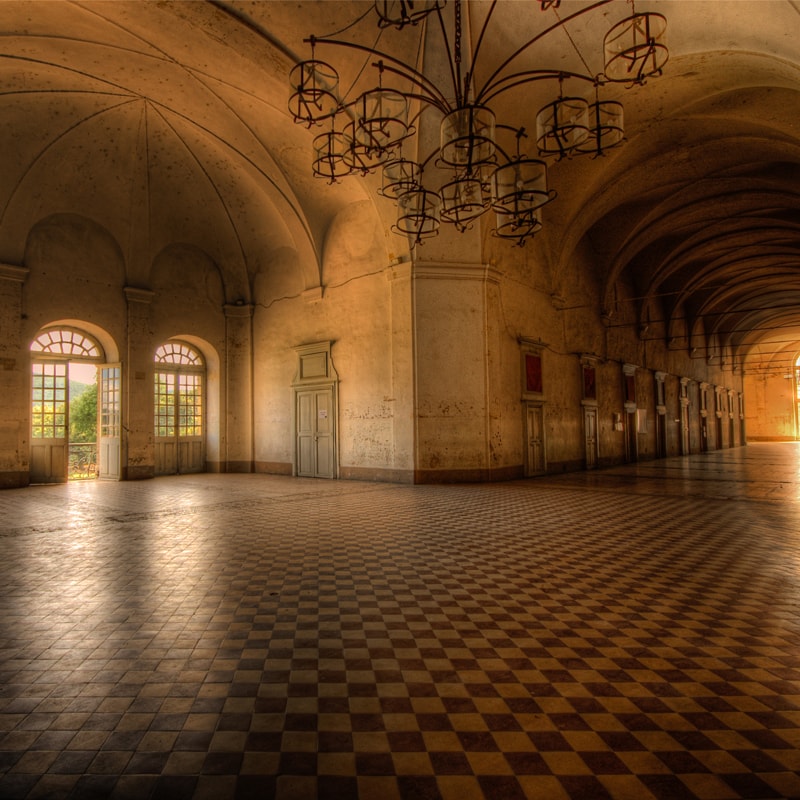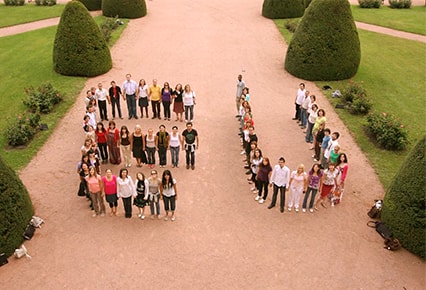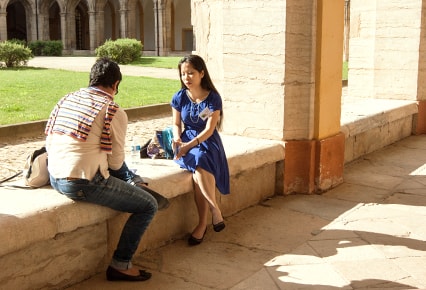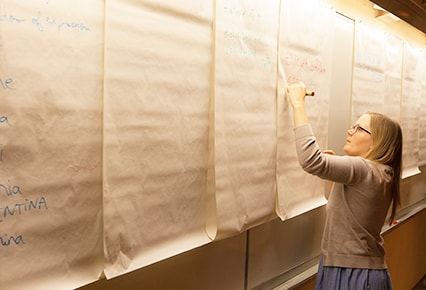What scenarios for Europe?
Young Europeans, key players in the future of the European Union
For five days in May, the spring seminar offers a unique opportunity for participants from all over Europe and beyond, to share their thoughts and ideas in order to better understand the challenges currently facing Europe. The global situation makes us aware that the values of peace, social justice, the fight against climate change and the collapse of biodiversity are not shared by the authoritarian regimes that are in control in a growing number of large states on the planet. The main objective will be to collectively reflect on the need to strengthen solidarity within Europe in order to put forward concrete proposals to achieve this.
Faced with its future, the European Union needs the vision and energy of the younger generations!
There’s plenty to think about! We look forward to seeing many of you there.
We look forward to have you on board!
years of experience
participants
countries
With 21 years of experience and over 850 participants from over 50 countries.
Want to know more?
![]()
ABOUT THE EVENT
Spring school 2025
2025 Topic: What scenarios for Europe?Young Europeans, key players in the future of the European Union
★ Where? Cluny Abbey, Burgundy, France
★ When? Monday 19 May to Friday 23 May 2025
★ What? See Program
★ How? See Method & Aims
About the Theme
In a speech delivered in Strasbourg in 1954, Jean Monnet warned Europeans: “We only have a choice between the changes we will be drawn into, and those we will have been able to desire and achieve”.
The European Union is the future for young Europeans. It’s important that they seize it and actively contribute to its future with their ideas, energy and commitment.
When, in the midst of the First World War, the young Jean Monnet, a simple 26-year-old citizen, succeeded in convincing the French and British to join forces in the war, did he know that he was setting in motion a process of collective action that would lead, a few decades later, to the creation of the European Union?
Today, it’s this pioneering and determined spirit that we need to reconnect with. At a time when the EU is once again facing a military threat and war at its borders, when it is becoming divided and seeing authoritarian temptations emerge from within, when power relations are once again imposing themselves as a means of managing relations between states, when it is struggling to hold its own in the global economy, it is the very foundations on which it was built that are being called into question, and with them the ability of Europeans to weigh in on major collective challenges such as the future of democracy, climate, health or AI.
Rich in its history, diversity, talents, values and status as the world’s second-largest economy, a united Europe can become a structuring power and a force for progress and inspiration for the world. To achieve this, it’s up to young Europeans to unleash their imagination and creativity, to get involved and make their voices heard to defend their aspirations and their future.
Based on introductory presentations analyzing the major challenges facing the European Union and current tensions and conflicts, participants will use debates and role-play to develop and simulate different scenarios relating to the evolution of the European Union and the world. An enlarging Union – or not? Does it acquire a defense capability capable of ensuring its own security – or does it remain dependent and vulnerable? Continuing along the path outlined by the Green Deal – or abandoning it? Who should continue along the path of integration and the construction of European sovereignty – or give priority back to national sovereignties? These are just some of the many dilemmas that participants will be invited to address.
The story of Jean Monnet, who as a young man used his imagination and determination to resolve the conflicts that shook Europe and the world, will serve as a point of reference for participants’ reflections.
The reflection carried out in Cluny is committed to going beyond the stage of diagnosis. We look forward to a stimulating exchange of views!
The Place
The spring seminar takes place in the historical site of the Cluny Abbey, which was a Benedictine monastery in Cluny, Burgundy, France.
1100 Years of History
Cluny, a spiritual and political capital in the Middle Ages, is now a major tourist and cultural attraction and a regional equestrian centre in the heart of the land of “Great Art and Good Living”.
Programme
- From 2.00 pm: Welcome and registration of participants, installation
- Ice breaking games
- 8.00 pm: Dinner
- Evening: Film and debate on Jean Monnet
- 9.00 am – 10.00 am: Introduction method
- 10.00 am – 12.30 pm: Interactive workshops on Jean Monnet’s method
- 12.30 pm: Lunch
- 1.30 pm – 3.00 pm: Visit of the Abbey
- 3.15 pm – 6.30 pm: Scenario development in open space
- 7.00 pm: Dinner
- 8:00 pm: Conference on the European Union in a chaotic world
- 9.00 am – 12.00 am: First role-playing session to simulate the scenarios
- 12.30 pm: Lunch
- 1.30 pm – 6.30 pm: Second session of role-playing scenarios
- 7.00 pm: Dinner
- 8.00 pm: Public conference on the challenges of EU enlargement
- 9.00 am – 12.00 am: Continuation of simulation games
- 12.30 pm: Lunch
- 2.00 pm – 6.30 pm: Citizen consultation in towns and villages, exchange with citizens of Southern Burgundy
- 7.00 pm: Dinner
- Evening: Preparation of the final presentation
- 9.00 am – 12.00 am: Preparation of final presentation
- 12.30 pm: Lunch
- 2.00 pm – 6.30 pm: Approval and formatting the final product
- 7.00 pm: Dinner
- Closing evening: Presentation of the results of the spring seminar to the general public, in the presence of guest speakers.
Aims
The main aims of the spring school of the European College of Cluny are to:
- Share and exchange
- Develop critical thinking skills
- Analyse and evaluate
- Compare and differentiate
- Propose innovative solutions
By coming to Cluny, you will have the opportunity to discover French national heritage and to live a unique multicultural experience with young people from all over Europe.
The Method
The “Cluny method” is the development of collective intelligence that makes use of interdisciplinarity and plurilingualism. The facilitators will invite the participants to develop their autonomy and their self-learning abilities, to appropriate innovative methods of co-construction based on mutual learning.
Conferences, training sessions and working groups will enable you to develop negotiation skills and to gain an overview of the main issues at stake.
How to Apply
- Prepare a CV and a short Cover Letter (in PDF, RTF, DOC format) outlining your motivation to participate in this event.
- Fill out the Application Form.
- That’s it!
Registration deadline: April 20, 2025
WANT TO JOIN US?
Selection Criteria:
★ Minimum age: candidates must be born before 1st January 2007
★ Personal motivation is very important
★ Geographic diversity
★ Linguistic competences: The working language will be English: a minimum level of B2 is expected. An understanding of French would be an asset (but not a prerequisite) to facilitate local exchanges.
Apart from language skills, no other academic or professional qualifications are required. We explicitly encourage participants from various fields to apply.
What seduced me in the European College of Cluny summer seminar proposal was both the framework and the title.
I really enjoyed the exchanges that the seminar allowed, the idea that we come from very different backgrounds, and not only geographical, and that we share common values. And I really liked the teamwork and I enjoyed it here.
This is the first time I’ve been to Cluny and it’s beautiful.
I really enjoyed exploring even further how the European institutions work and I learned a lot, especially during the course on negotiation and the conference given by MEP Philippe Lamberts.
I met a lot of people and even if I don’t speak French very well, it was easy to switch from one language to another and thus to learn differently.
I am a student in international relations and history and I attended the summer school thanks to Facebook. It was the theme that really inspired me.
I loved the course on negotiation, as well as the atmosphere throughout the seminar. It was a very benevolent atmosphere from beginning to end.
For me, the most impressive course was the Citizen Jury. This is the first time I have played a role and tried to find both solutions and compromises. It was very important to use our listening skills.
At first, it was rather complicated for me to quit the university mold and understand the organisation and teaching methods of this summer seminar, but once the ” culture shock” was over, I found it very interesting. I really learned from the negotiation class and the role-playing. I realised that without prior training, it is very difficult to engage in negotiation work, for example.
This was the first time I attended a summer seminar and the first time I really spoke French outside of my classes. It was very comfortable because when I felt lost, I could easily switch back to English.
I learnt a lot from the Citizen Jury. It was a fairly complete simulation, a good illustration of the difficulties that can be encountered when starting a project construction or negotiation process. This time, even if it wasn’t “real”, we came to some sort of consensus based on compromise, even if it wasn’t very easy.
It was someone from my association who told me about the summer seminar and I am truly convinced that Europe can only be built with “true meetings”. I want to help change things in Europe and advance the idea of Europe among citizens. I am one of those people who, as soon as they are faced with a problem, want to find a solution to it.
So it was important to meet and I particularly enjoyed the group work. It shows that some projects can succeed, or at least move forward. When I arrived here, I thought “when there is a project, there is a way”, I think that even more after a few days of working with other young people.
Here, I have the impression of a great openness of mind: I’ve been here for several days and I cannot distinguish if this openness of mind is due to the fact that we are all very different in our education and our characters, or to the fact that we really come from different countries and different cultures.
Registration Fees:
Limited places, hurry up to register!
Registration:
- 340 €
Financial assistance can be provided by our partners on request.
What You Receive
- Accommodation (shared rooms)
- Meals: breakfast, lunch and dinner
- Seminar and Conference access— full access
- Guided tour of the Abbey of Cluny and Museum
- Application fee
- Certificate of participation
Partnerships and Support
![]()
Many well-known personalities support the Convention of Young European Citizens:
- Philippe Lamberts, MEP
- Jan Sokol, Former minister of Education in the Czech Republic
- Vladimir Spidla, Former Prime Minister of the Czech Republic, former European Commissioner
- Bronislaw Geremek, Former minister of Foreign Affairs of Poland, former MEP
- Michel Rocard, Former Prime Minister of France, former MEP
- Rolands Lappuke, Former Ambassador of Latvia in France
- Pavel Fischer, Former Ambassador of the Czech Republic in France
- Viviane Reding, Former MEP, former member of the European Commission
- Pascal Lamy, Former WTO Director-General, former European Commissioner
- Vaclav Havel, Former president of the Czech Republic
- Elmar Brok, MEP
- Pervenche Berès, MEP
The 2011 Convention was held under the patronage of Mr. Herman Van Rompuy, former President of the European Council.

To apply, fill out this Application Form :




